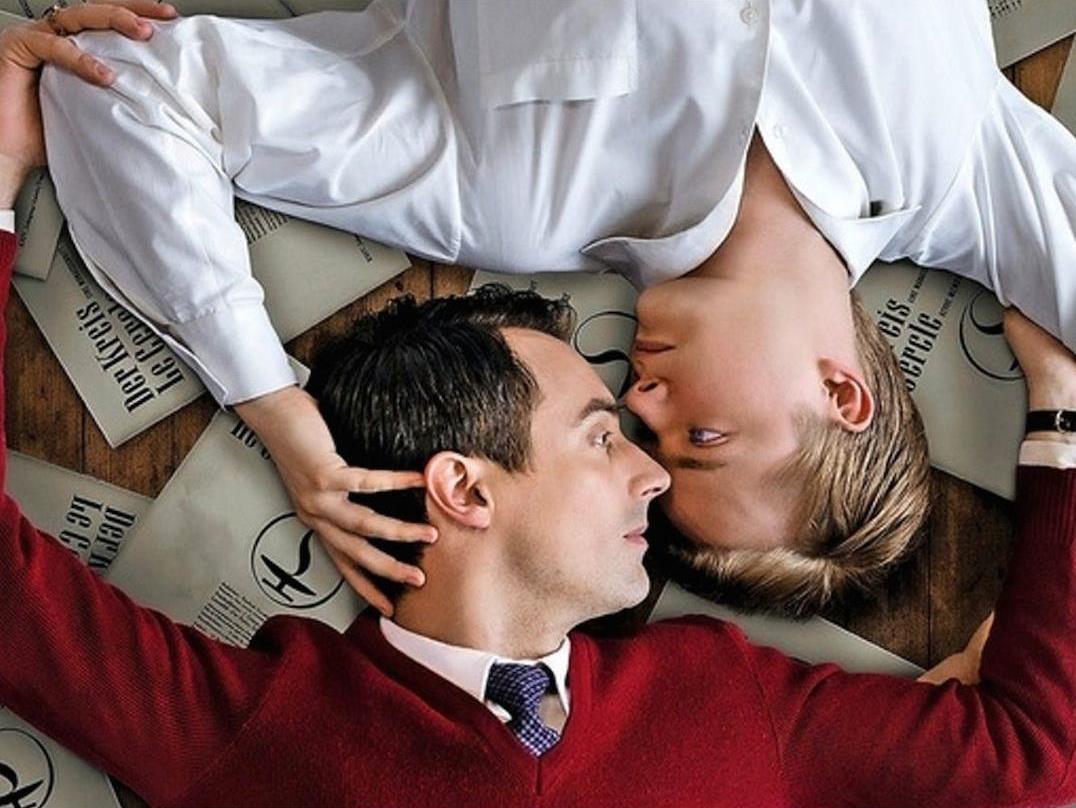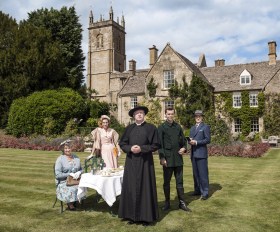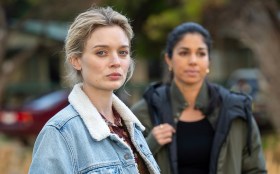In 1956, Ernst Ostertag was a young schoolteacher from bourgeois roots, and Röbi Rapp was an 18-year-old performer supported by his widowed mother. One was warned against introducing troublesome material such as Albert Camus’ The Stranger to his all-female students, while the other sang on stage dressed in drag. Their paths crossed at a ball held by The Circle, a Zürich gay club and a magazine. Though their love blossomed, society – be it family, bureaucracy, employers, law men or strangers – was far from accommodating; unlike nearby Germany, homosexuality was not a crime in Switzerland at the time, but nor was it embraced.
Taking its title from the publication and organisation that served as a catalyst for Ernst and Röbi’s romance, The Circle (Der Kreis) tells a true tale, both relying upon and refusing to be boxed in by the two usual on-screen storytelling methods. At once and in tandem, it is an earnest, emotional drama and an insightful, intimate documentary, splicing together period recreations of the real-life figures’ earlier lives with candid contemporary interviews with the still-happy men – the first same-sex couple to get married in Switzerland, in fact.
The picture painted by writer/director Stefan Haupt (How About Love), screenplay collaborators Christian Felix, Urs Frey (Child’s Dream – Zwei Banker Auf Sinnsuche) and Ivan Madeo (short Freitag), and script consultant Sabine Pochhammer (Wetlands) is one of struggle and perseverance, not in terms of affection, but for acceptance. Though Ernst and Röbi remain the access point into the story, as well as the guides through it – as themselves, and as played by the largely inexperienced but wholly effective pair of Matthias Hungerbühler and Sven Schelker – this isn’t just their tale. The underground, post-war social network that proliferated courtesy of The Circle was vast and welcoming, touching the lives of many, and earning the wrong type of attention when a series of murders targeted the community.
If it is in the elegant dramatizations that the film best serves its subjects’ enduring love story, it is in the intermingled thoughtful reflections that it truly expresses the legacy of the organisation that led the fight for gay rights in Switzerland, and thus does justice to the movie’s moniker. The former is handsomely shot whilst simmering with the tension that was a sad daily reality in a regime of oppression and persecution, conveying much in the stillness and precise framing of lingering moments. The latter is tinged with sweetness, affording depth and context – particularly through other interviewees – and showing the extent of the modern-day ramifications. Combined, they recount an essential, under-acknowledged chapter of history with both heartbreak and hope.
What doesn’t always work is the combination, as refreshing an approach as it is and as seamlessly handled in a technical sense. Interjections of talking heads into quiet drama are jarring in unravelling the narrative; vice versa, switching from personal memories to their staged approximation sometimes proves a poor fit. Perhaps there are two great movies to be made out of the content – and many more, no doubt, out of the surrounding circumstances. Indeed, The Circle’s greatest feat is leaving audiences not only moved and engaged, but wanting more.
Rating: 3.5 stars out of 5
The Circle (Der Kreis)
Director: Stefan Haupt
Switzerland, 2014, 102 mins
Brisbane Queer Film Festival
6-15 February
Mardi Gras Film Festival
19 February – 5 March
Actors:
Director:
Format:
Country:
Release:





